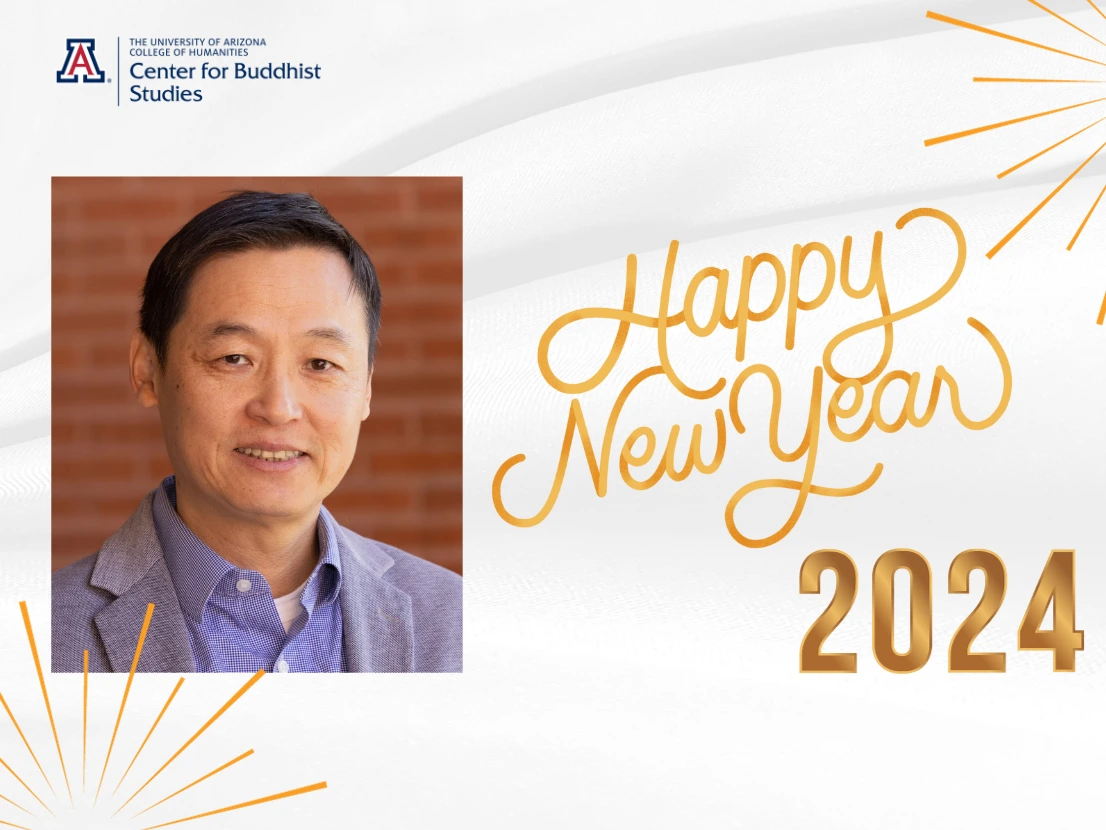
Dear faculty, staff, students, and friends of the Center for Buddhist Studies,
Happy New Year! On behalf of the Center’s faculty and staff, I would like to wish you a happy, healthy, and prosperous 2024. It has been a year of successes and reflection as we look beyond the pandemic and plan for our future. I am grateful for the perseverance and resilience of our staff, students, and community members as we adjust to the new normal. We continue to benefit from more frequent hybrid and online interactions, which has allowed us to connect with supporters and participants from around the world.
In the past year, our Buddhist Studies lecture series continued with a robust schedule of lectures and events. Commemorating the 350th death anniversary of the Chinese Zen Master Yinyuan (Japanese: Ingen) who founded the Japanese Ōbaku tradition, the Ōbaku Ingen lecture series and online art exhibition continued, featuring the private collections of Dr. Harald Conrad and Dr. Stuart Katz. These events were made possible thanks to the generous support from Wanfu Temple in Fuqing, Lingyin Temple in Hangzhou, Pu Yin Education Center, and Matcha.com.
In February, our center co-sponsored the East Asian Language and Culture Festival with a Sakura Tea Circle Tea Ceremony Demonstration; in May, we co-sponsored a conference Fluid Borders, Shifting Visions: China-Japan Trans-regional Religions; and in June, we co-sponsored an International Amulets Conference in Bangkok, Thailand. With the support from Matcha.com, we launched a tea research program to investigate how East Asian ways of tea-drinking have changed American life and world culture.
Our fellowship programs continue to support the exemplary research projects of our graduate students. Awards have been given to talented students who have engaged in high-quality research, and some have already finished their dissertations and secured employment.
Our faculty also conducted amazing research, published books and articles, continued to teach and mentor students, and were promoted to administrative roles in the university.
Scholars and researchers associated with the Center continued the success of the Chinese Buddhist Canon Research Newsletter (CBCRN) and the Community Wellness Newsletter. A big shout-out to our editorial teams who have made these newsletters phenomenal.
Our collaboration with the Andrew Weil Center for Integrative Medicine (AWCIM) has reached a new phase: the creation of the Health Humanities Hub, an umbrella organization of College of Humanities programs that will be located in the new Weil building. This new initiative derived from the original plan for the Center to be housed in the new building, and we are honored to continue this partnership.
In the new year we have lined up several exciting initiatives and events and I would like to call your attention to some highlights. Our center is undergoing a routine review and reauthorization process, which includes a Self-Study Report and External Review. We are taking this opportunity to consolidate our programs and reflect on our strengths and potential areas of improvement.
We also want to thank our donors and collaborators. Our events and projects rely on your continuous support, and we are looking forward to your contribution and participation in the new year.
Please use this link to contribute: Donate Now (https://give.uafoundation.org/results?id=21a0122a-2300-48e1-87ca-52801498144f)
Best wishes and Happy New Year!
Jiang Wu
Director, Center for Buddhist Studies
Professor, Department of East Asian Studies
College of Humanities

